Twenty journalists in Kharkiv studied and deepened their knowledge of security: digital, mine-explosive, and when working in emergencies. The training took place on June 7, 8, and 9 thanks to the joint actions of the 2402 Foundation, the National Union of Journalists of Ukraine (NUJU), the Civil Society Development Center non-governmental organization, and the Kharkiv Journalists’ Solidarity Center (JSC) of the NUJU.
In the spring, HEFAT training was held in Kyiv. But it was most important to do it in Kharkiv near the front. That is why the operations manager of the 2402 Foundation turned to the NUJU to find a space to hold a three-day course. Curriculum standards required a lecture hall and a facility or training ground for the safety course. Everything had to be, as far as possible, protected from the threats of war. Thanks to joint work, such locations were found. A full-scale invasion added risks but also gave many good acquaintances and cases of cooperation. Today, the rule of three handshakes works more than ever.
A separate difficulty is to gather a group of people for training. Kharkiv media workers always need such courses, and it is urgent, but the workload associated with shelling is very heavy every day. As a result, the date of the event became symbolic – it fell on the day after the professional day of Ukrainian journalists.
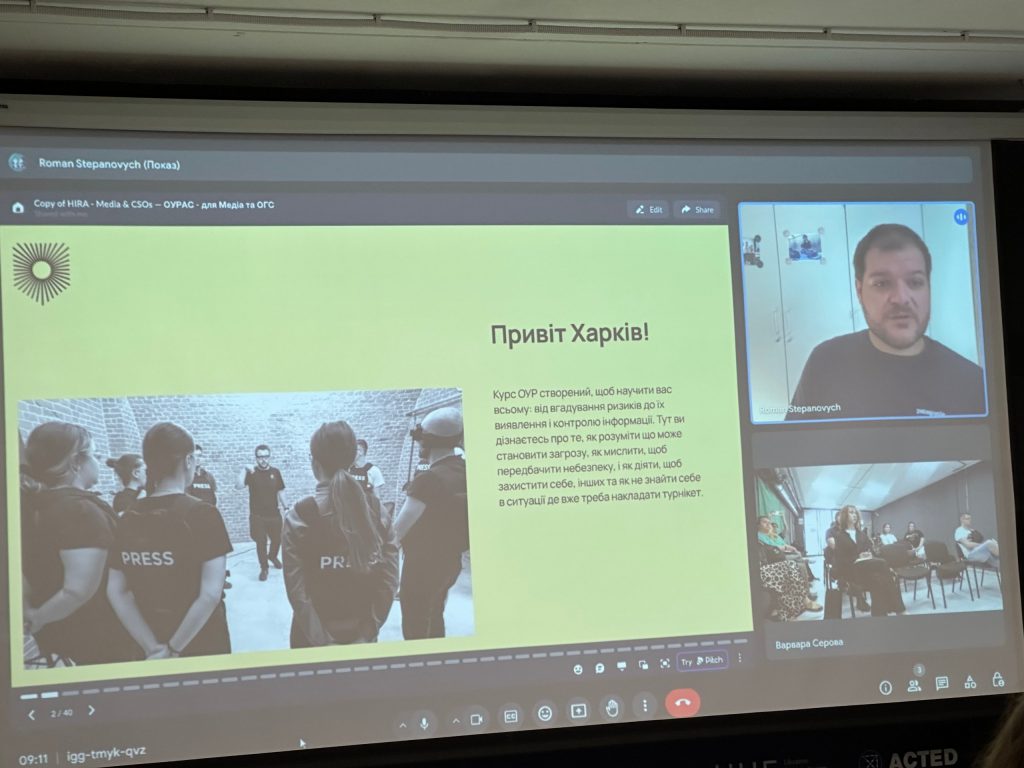
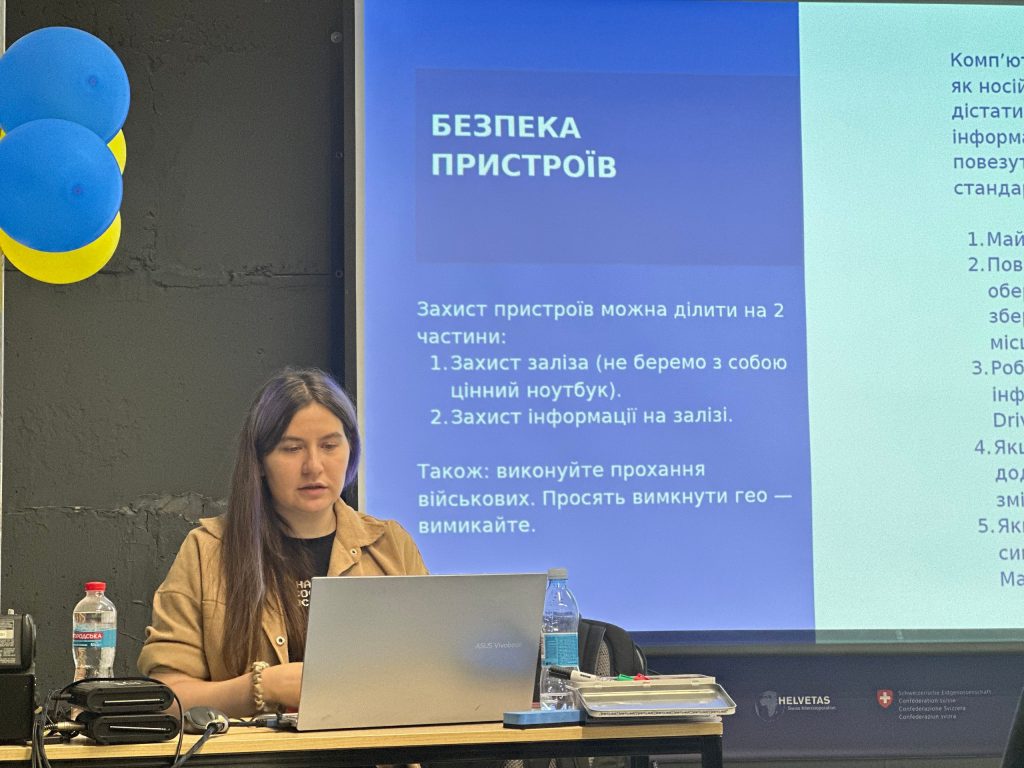
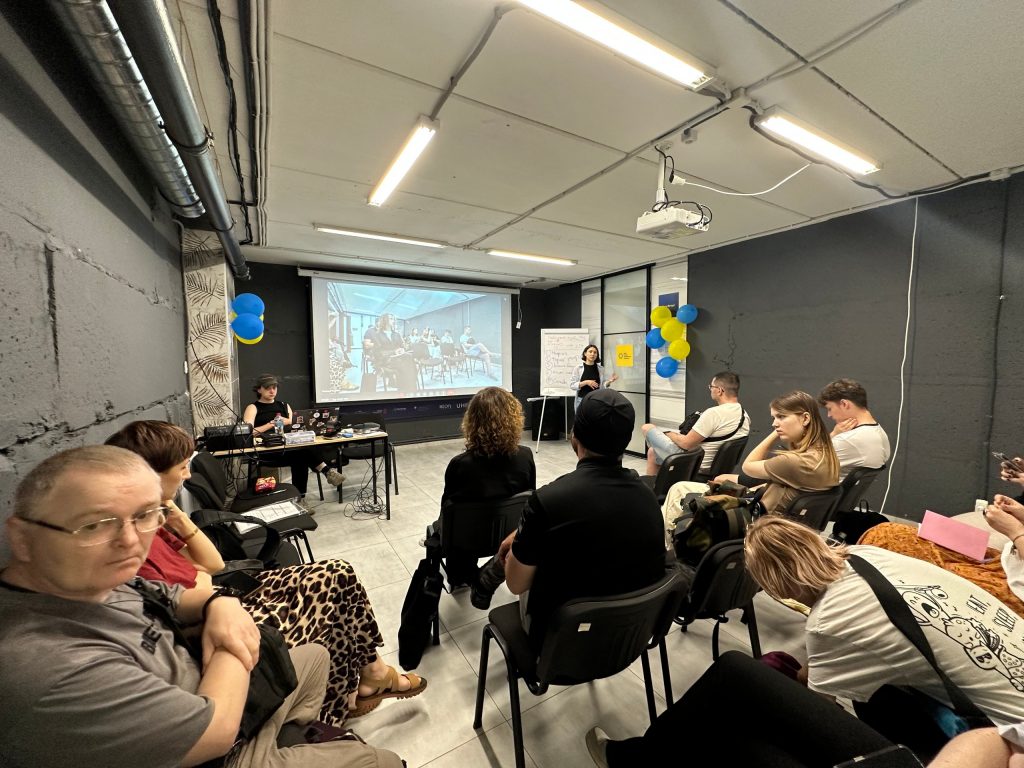
“We came to Kharkiv with HEFAT training; we have been conducting these training sessions since the beginning of the full-scale invasion since the 2402 Foundation was created by journalists. And we see it as our mission to support journalists, military reporters,” said the operations manager of the 2402 Foundation.
On May 25, photos and videos circulated on social networks showing journalists working together with rescuers and the police in the Epicenter destroyed by shelling and running away from danger at the “air” signal and lying on the ground due to possible repeated strikes. Media workers who worked at the scene of the impact also came to the training. Among them were colleagues Oksana Necheporenko and Anton Avizhas.
“Now, I not only know what is in my first aid kit, but also I know what to do with it. And thanks to our excellent trainers, this knowledge is collected and structured. So, even though I’m barely alive from muscle fever and bruises, I’m grateful for such intense days of study. Let it be better that than a death that could be prevented,” said Oksana Necheporenko, a correspondent at Channel 5.
Media representatives from regional, national, and foreign media took part in the training: Nakypilo, Gwara Media, SN Visti, News Channel 24, Channel 5, Radio Liberty, Reuters, etc. Someone just entered the profession at the beginning of the full-scale invasion, someone became a war veteran in 2014, and someone is filming the first war. Accordingly, the knowledge of the participants was different. There was also the first applied tourniquet and a repetition of the first aid course.
“We laughed enough, counted how many bruises we got when we put tourniquets or saved the “wounded,” and thought about it. There are so many dangers around… There have been so many moments I took risks at… What should I do if… Now, it’s easier for me, although I don’t want to apply knowledge in practice at all. And the best feedback I can give to the training is that there is already a repeat request for it in Kharkiv,” noted the co-coordinator of the NUJU‘s Kharkiv JSC, Hanna Chernenko.
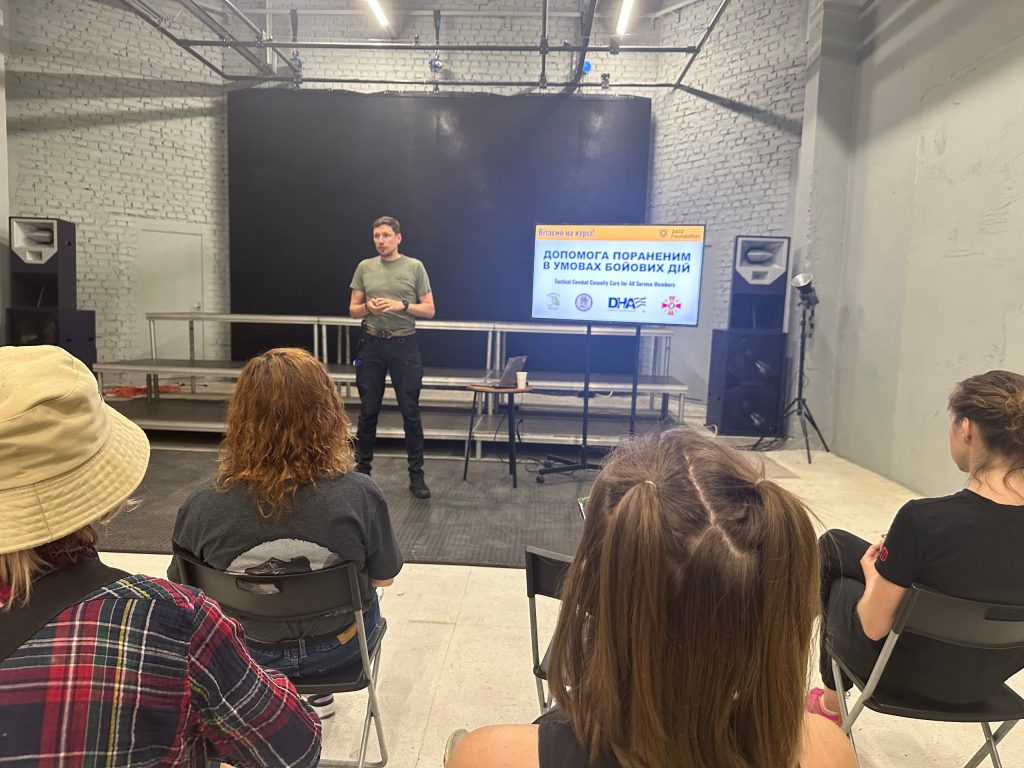
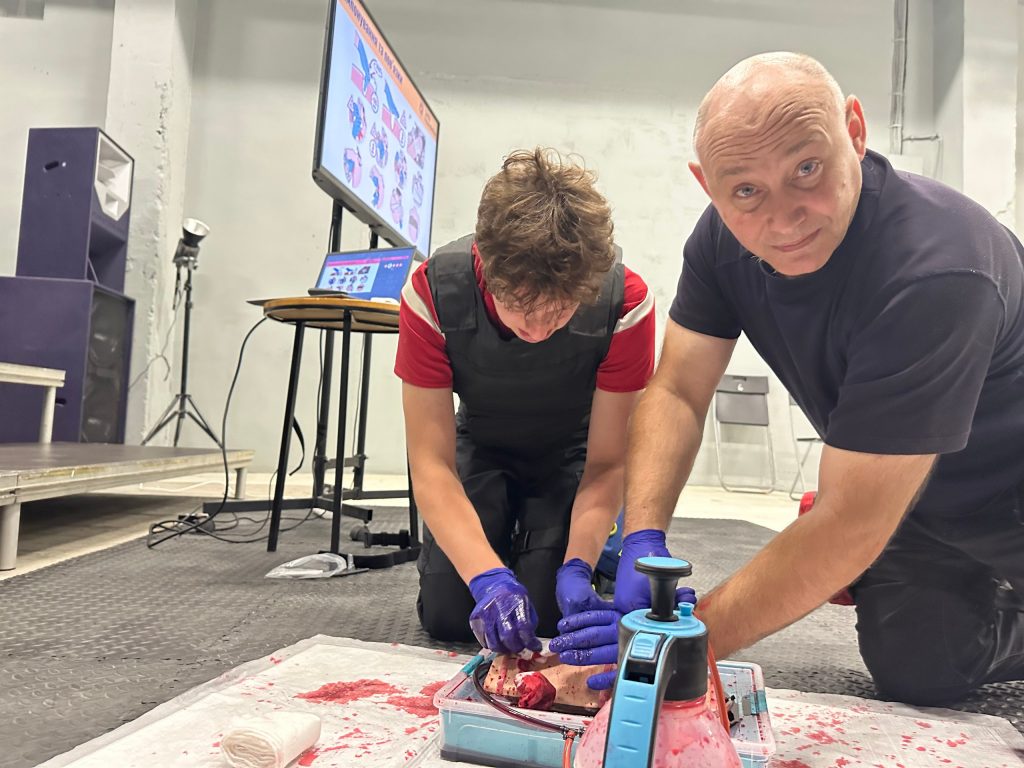
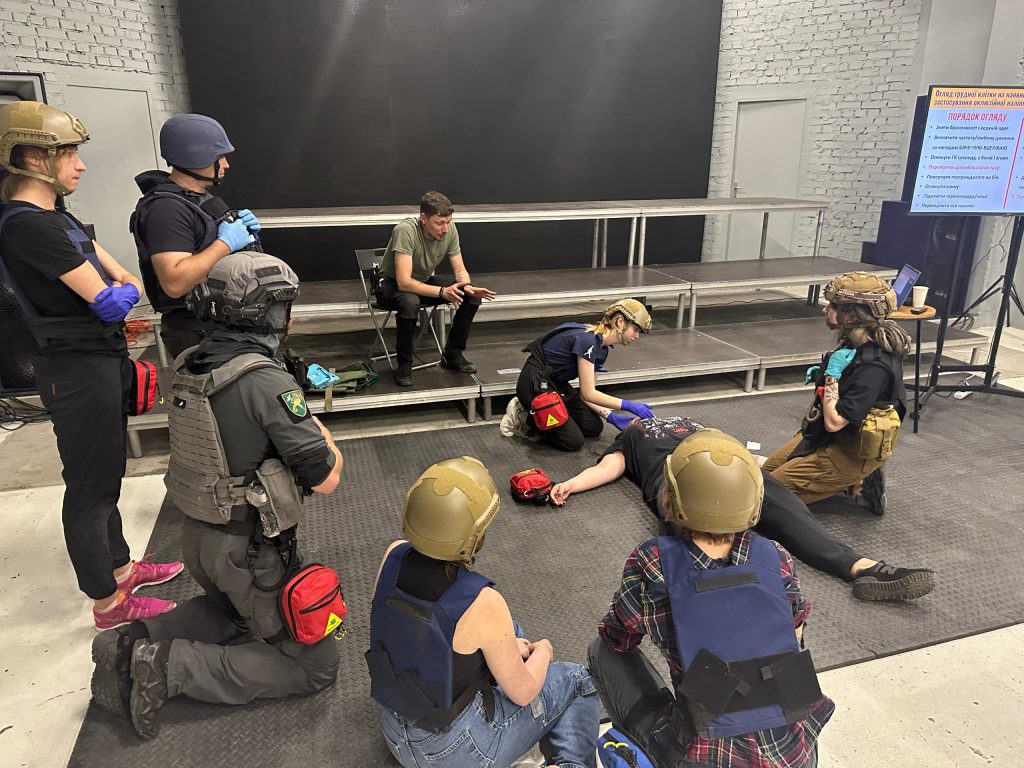
Three days passed for the participants of the training with maximum benefit. It is difficult to explain the importance of what teaches you to survive or help a partner, colleagues whom you see in the most difficult emotional moments, or just people who happen to be nearby.
Call the Kharkiv JSC at 093 813 7544 (coordinator Anna Chernenko)
ABOUT JSC
The Journalists’ Solidarity Centers is an initiative of the NUJU implemented with the support of the International and European Federations of Journalists and UNESCO. The initiative is designated to help media representatives working in Ukraine during the war. The Centers operate in Kyiv, Lviv, Ivano-Frankivsk, Chernivtsi, Zaporizhzhia, and Dnipro and provide journalists with organizational, technical, legal, psychological, and other types of assistance.
ABOUT UNESCO
UNESCO is the United Nations Educational, Scientific, and Cultural Organization. It contributes to peace and security by promoting international cooperation in education, sciences, culture, communication, and information. UNESCO promotes knowledge sharing and the free flow of ideas to accelerate mutual understanding. It is the coordinator of the UN Action Plan on the Safety of Journalists and the Issue of Impunity, which aims to create a free and safe environment for journalists and media workers, thus strengthening peace, democracy, and sustainable development worldwide. UNESCO is working closely with its partner organizations in Ukraine to provide support to journalists on the ground.
The designations employed and the presentation of material throughout this digest do not imply the expression of any opinion whatsoever on the part of UNESCO concerning the legal status of any country, territory, city, or area or its authorities or concerning the delimitation of its frontiers or boundaries.
The authors are responsible for the choice and the presentation of the facts contained in this digest and for the opinions expressed therein, which are not necessarily those of UNESCO and do not commit to the organization.
Kharkiv JSC information service

 THE NATIONAL UNION OF
JOURNALISTS OF UKRAINE
THE NATIONAL UNION OF
JOURNALISTS OF UKRAINE
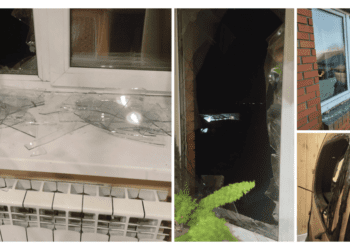
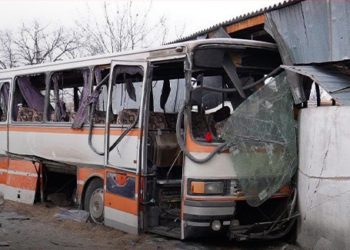














Discussion about this post